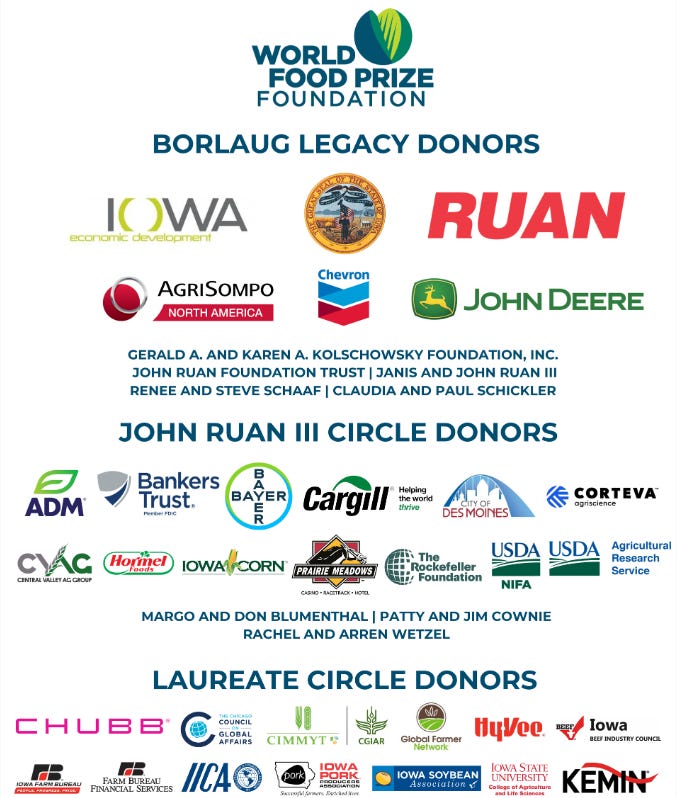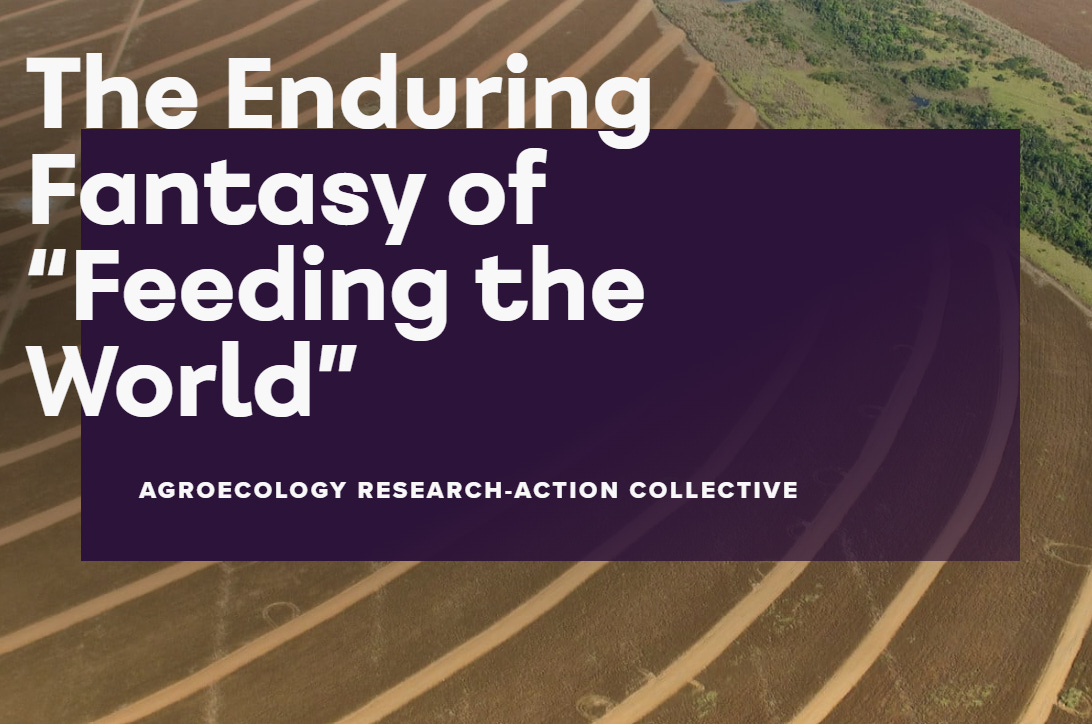Why won't the "feed the world" myth ever die?
(New essay in Spectre)
In the recent New Yorker article titled “Do We Need Another Green Revolution?”, environmental journalist Elizabeth Kolbert echoes an increasingly familiar refrain: if organic or regenerative farming practices reduce yields, they may actually harm the planet. As she puts it, “To hold the globe’s food supply steady, not to mention increase it, any drop in one farm’s output has to be made up somewhere else. And that somewhere may well turn out to be a field cut out of a rain forest.”1
This logic rests on a seductive but flawed premise: that the only way to nourish humanity is to intensify agricultural production. It’s the same logic that underpins a recent open letter sponsored by the notoriously agribusiness-inflected World Food Prize signed by Nobel Laureates, including Jennifer Doudna, co-developer of CRISPR gene-editing technology. The letter warns that “we are not on track to meet future food needs. Not even close,” and calls for a sharp rise in food production by mid-century.
The logic of the need to “feed the world” is powerful. It litters the introductions of countless published articles and sustainability provocations. It drives agricultural policy and motivates intensive farmers. Yet, the premise abstracts the politics of hunger into a problem that singularly concerns yields, naturalizing industrial production and muzzling promising alternatives.
In an essay published in Spectre, written with colleagues from the Agroecology Research Action Collective, we show that the “feed the world” narrative is not a neutral or humanitarian goal—it’s a tired myth with deep colonial-capitalist roots. It has long served to justify the expansion of industrial agriculture, not to end hunger, but to secure profits, control land, and marginalize alternative food systems.
Today, this myth is being rebranded in the language of sustainability. Visions like “sustainable intensification,” “climate-smart agriculture,” and “Abundance” promise that we can produce more food on less land, saving an anonymous nature while feeding an faceless humanity. Central to this green rebranding of the feed-the-world myth is the land sparing hypothesis, the idea that intensifying production in some places will allow other lands to be “saved” for nature.
This worldview has gained traction not just in journalism and think tanks, but in the policies of institutions like the World Bank, the Nature Conservancy, and the World Resources Institute. It merges the legacy of the Green Revolution with a greenwashed techno-utopianism.
There is no global stomach. Yields only play a part of the story of hunger, where systems of inequality, dispossession, and political neglect are much more salient. The more the myth lives on that “feeding the world” is inevitably accomplished through intensification, the more we hold back the alternative: a world that feeds itself2.
Read the full essay, The Enduring Fantasy of Feeding the World in Spectre, written with Maywa Montenegro de Wit, Alastair Iles, and Ben Iuliano.
As a useful exercise, list the assumptions in this sentence.
The phrase “A world that feeds itself” is borrowed from Michael Bell in Farming for Us All: Practical Agriculture and the Cultivation of Sustainability. Twentieth Anniversary Edition (University Park, PA: Penn State University Press, 2024).





Good post Adam,
The overproduction scenario mentioned in the full article in Spectre is very relevant and as a matter of fact it is already reflected in obesity and food waste as well as in biofuel industries (the latter could of course be seen as a necessary thing similar to the draft animals of the past, but that is not how biofuels work today).
I have compiled quite a relevant set of data on that in a series of posts. https://gardenearth.substack.com/p/not-more-but-better-part-1
Thank you for this post! This is exactly the same conclusion I've come to in my own research into the history of the "feeding the world" idea. I gave a presentation on that history this winter at the NOFA-NJ and OEFFA conferences: https://www.youtube.com/watch?v=Crnnab6ZdKY . I've identified this "feeding the world" idea as one of the biggest reasons that organic farming hasn't been more widely adopted, especially in the US, and have written several posts related to this topic, including this one: https://annelieseabbott.substack.com/p/flawed-logic-would-4-billion-people-die-without-nitrogen-fertilizer . It's really encouraging to see that you've come to the same conclusion. Keep up the good work!